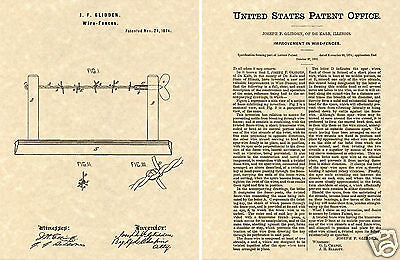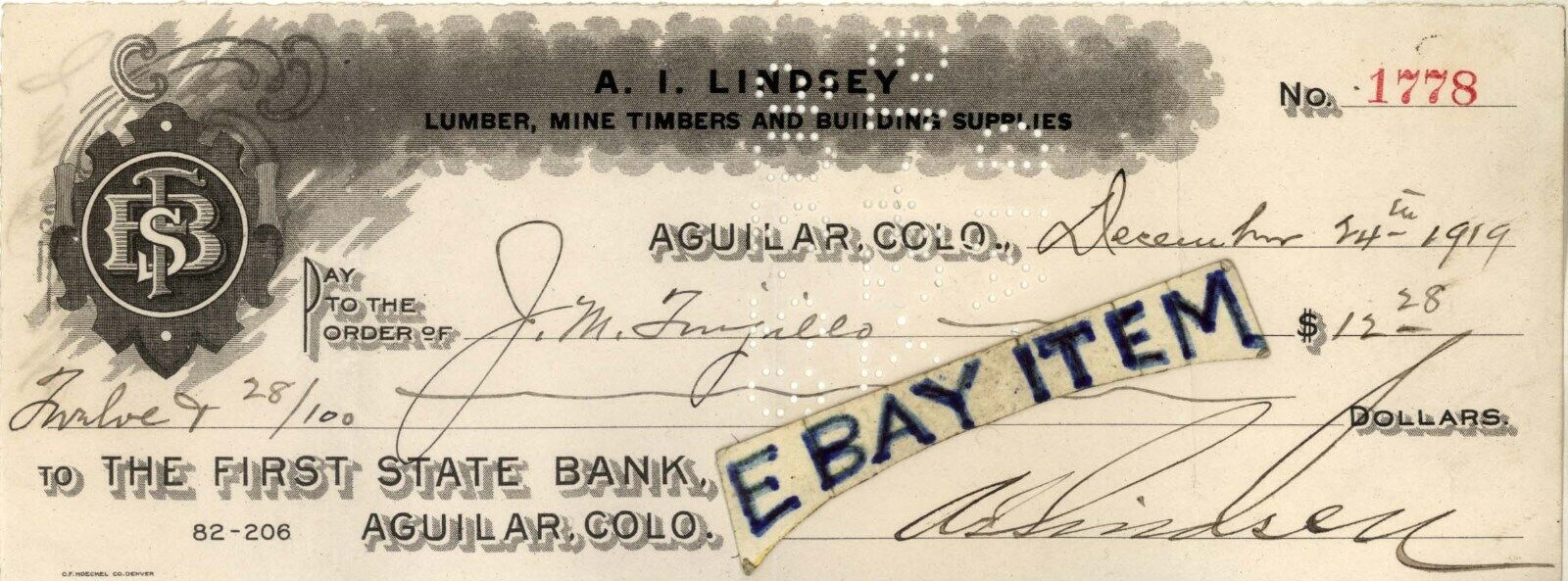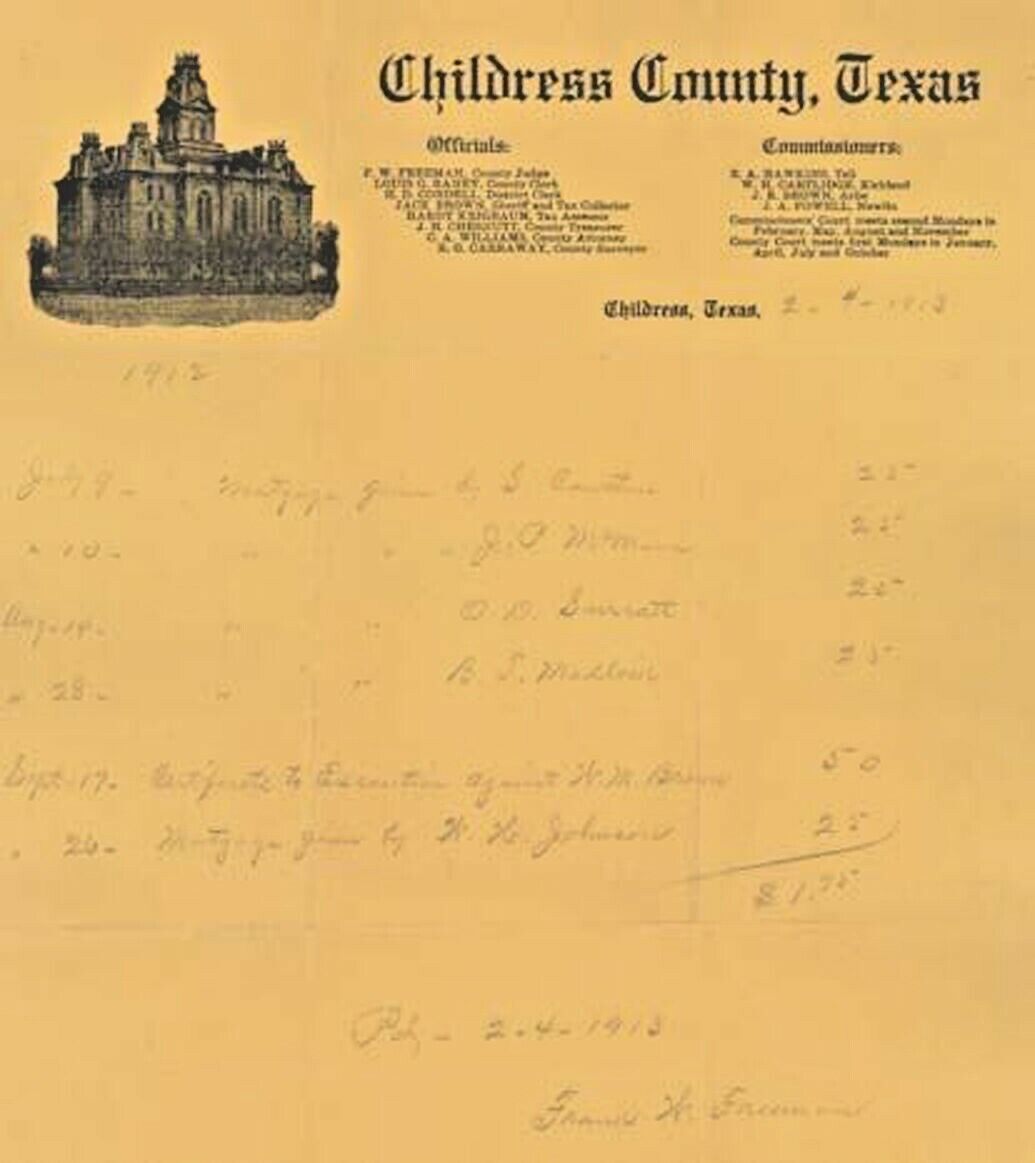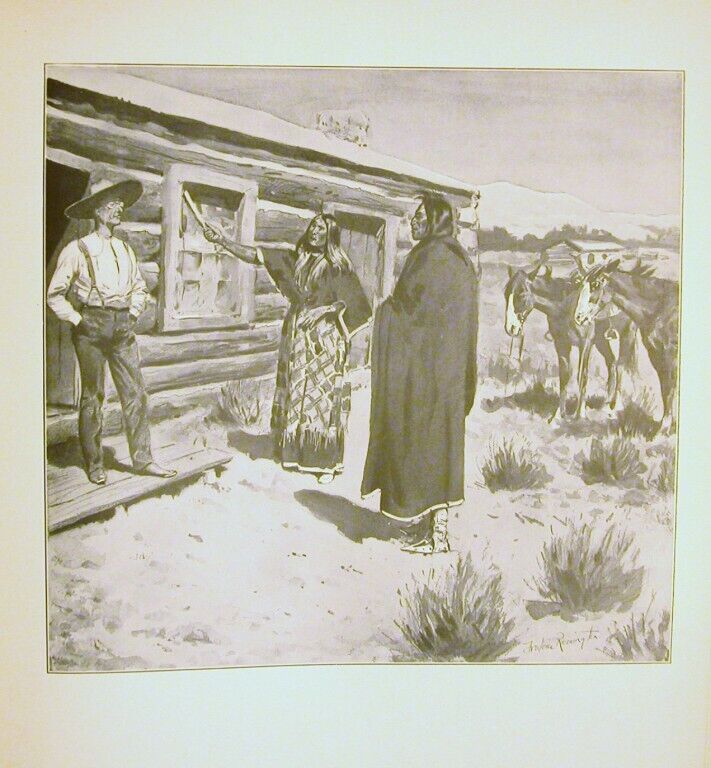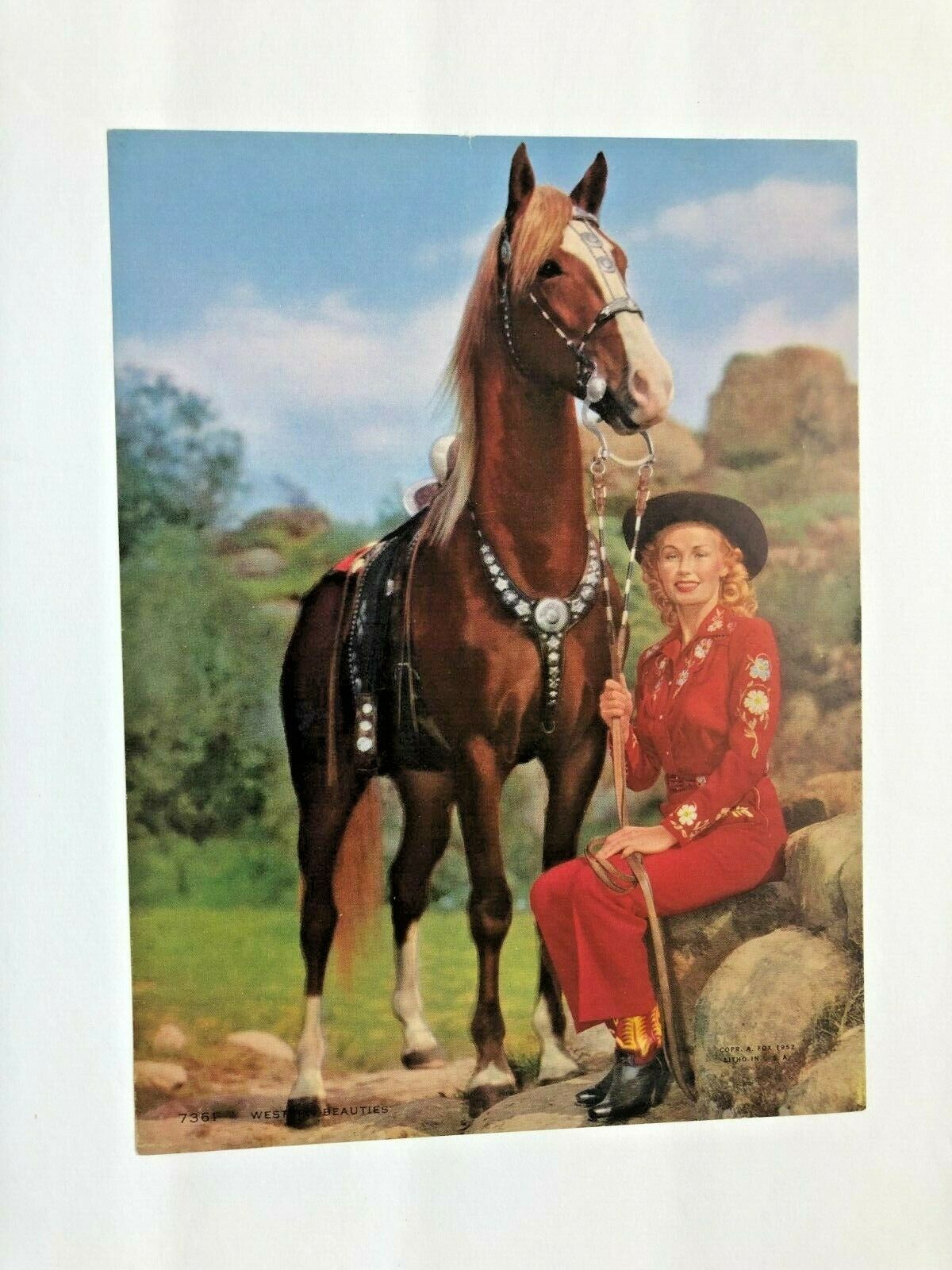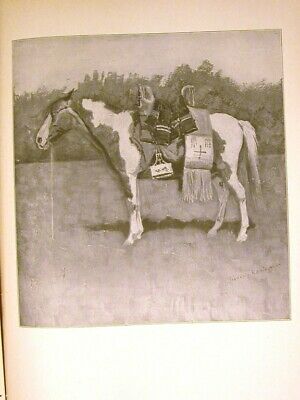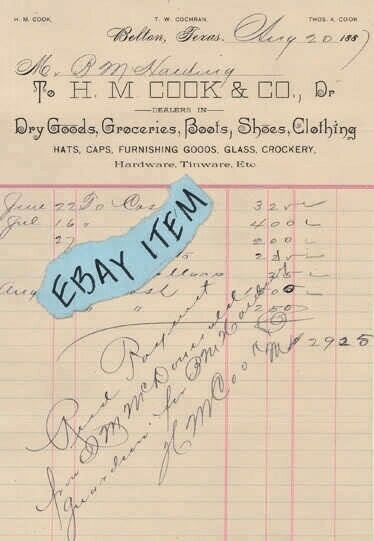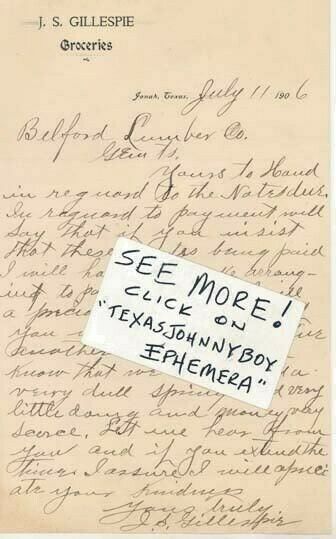-40%
1883 2x SIGNED NEVADA PIONEER CONTROLLER GOLD MINER 'INDIGENT FOR INSANE' DOCs
$ 131.94
- Description
- Size Guide
Description
INVREF#CL4-57JAMES F. HALLOCK (1833 - 1903) NEVADA TERRITORIAL PIONEER, NEVADA STATE CONTROLLER 1878-1890 & CIVIL WAR ERA CALIFORNIA/NEVADA GOLD and SILVER MINER and MINING EXECUTIVE! HERE’S AN ATTRACTIVE 1883 DOCUMENT SIGNED BY HALLOCK – A CARSON CITY, NEVADA STATE CONTROLLERS WARRANT, DATED FEB. 1, 1883, PAYING GEORGE W. HUFFAKER, TRAVEL EXPENSES INCURRED ON STATE OF NEVADA BUSINESS INVOLVING THE “STATE INDIGENT FOR THE INSANE” IN DEC. 1882. HUFFAKER SIGNS ON THE VERSO OF THE DOCUMENT. ANOTHER DOCUMENT SIGNED BY HALLOCK IS ATTACHED TO THE BACK OF THE DOCUMENT THE DOCUMENT BEARS AN ATTRACTIVE VIGNETTES OF A MINERS WITH SHOVEL and PICK AXE (SERIAL No. 767). The document measures 10¼” x 5¼” and is in VERY FINE, CRISP & CLEAN CONDITION! AN FINE PIECE OF NEVADA STATE POLITICAL HISTORY! > BIOGRAPHY of the HONORABLE JAMES F. HALLOCK James F. Hallock was born of humble parentage, his father being a small farmer at Moriches, on Long Island, New York, his life dates from that place and the twenty-fourth of March, 1833. His early years were spent in attendance at school and helping his father, until seized with an uncontrollable desire to see the world, he went to sea when but eighteen years of age, and was absent for three years, when returning to his home he was induced to abandon an ocean life and become a dry goods clerk in Brooklyn, New York. In 1855 he sailed for San Francisco, where, upon his arrival, a couple of months were spent in coasting in a brig belonging to a friend, who offered him the position of Captain of it, or to furnish money to start in mercantile business with; both generous offers, however, were refused. The mining mania had taken full possession of him, and nothing short of "a cot in some vast wilderness" would do. The next three years were devoted to an unsuccessful search, along the eastern bank of the river for Aladdin's treasures. During that time, one of his most extensive operations was to shift the course of the middle fork of the Feather River, with a dam. In May, 1858, he joined the throng that left in pursuit of the Frazer River ignis fatuus, and came back in the fall to Camptonville, Yuba County, California, with a purse that looked like the seven lean kine spoken of by the Evangelist. In May, 1860, he first visited Nevada, his companion being the since notorious Azbery Harpending, who was arrested on the eve of an attempt to sail from San Francisco, with a letter of marque from the Southern Confederacy, to prey upon the American shipping on the Pacific Ocean. At the time they arrived in Nevada, in 1860, the Pah-Ute War was in progress; but they continued, without interruption, their prospecting in the hills, now known as Peavine District, in Washoe County. The same year he returned to California, and engaged in mercantile business at Brandy City, in Sierra County, where he remained until 1863. This latter year he again tried his fortunes with a mining excitement that lead him, this time, to the Owyhee country, from where he returned with the usual results. On the twelfth of February, 1864, he arrived in Austin, Lander County, and forming a co-partnership with two other persons, commenced work upon a mining prospect. An unsophisticated capitalist came along one day and paid the three men ,000 each for their hole in the ground. When the verdant purchaser had passed beyond hearing distance, and the partners came fully to realize the singular freak of fortune that had dumped this money at their door, one of them expressed the astonishment and feelings of them all at the strange, unexpected, unaccountable transaction by remarking, "Let us pray." Hallock invested his proportion of the funds obtained from the sale of the prospect in a grocery business at Austin, where he remained until August 1, 1868, when he located at Treasure City, in White Pine County. For a year—in connection with Charles F. Meyers—a successful mercantile business was transacted, after which they were overtaken by business misfortunes. Their failure was caused by having a large stock of merchandise on hand when the railroad commenced bringing goods at reduced freight rates into eastern Nevada, combined with the sudden collapse of the mining excitement in that part of the country. While everything was prosperous with Hallock he was married to Miss Sarah L. Currie, of Virginia City, on the thirtieth of November, 1868; and the young bride went to her new home with a heart filled with fond hopes of passing her future years over a life path covered with the rose tints of happiness. Yet three of them had not come and gone before the young mother, summoned by the dark messenger, with a parting prayer for her husband, and kiss for the infant boy, passed out into the shadows of the mysterious unknown. Hundreds of miles lay between the dead mother and her girlhood's home; but Hallock determined to take her to that place for burial. No stage company would take the pale sleeper as a passenger, and he was forced to charter a stage for that purpose. With the cold, inanimate form of the once beautiful and loving wife, lying in her coffin, fastened to the seat beside him; with the little child calling for its dead mother, and sobbing in his arms; with the long lonesome miles of dreary deserts that lay between him and the grave that awaited his dead, he started, with no companion but the driver, the little motherless babe, and his grief, to carry the dead wife to her father's home. It's all a sad picture, sadder than tears, but from out the background appears the fact, that such acts as these come only from promptings of a kind heart, true in its affection, constant in its allegiance, generous in its motives; and from such we would choose our friends. Hallock, after the death of his wife, visited his home in New York, and taking his little boy— whose name is James C.—left him there with his grandparents. After an absence in the East of about one year he returned to Nevada, and, in October, 1872, settled in Pioche, where he became bookkeeper and collector for the Water Company of that place, and Secretary of the Alps Mining Company. In 1878 he was placed by acclamation upon the Republican ticket as a candidate for State Controller of Nevada, and was elected to that position for a term of four years. He was subsequently re-elected and served through the 1880s. As a State guardian of public receipts and expenditures he had no superior in those who have filled that position in this State. His Controller's report of 1881 is an exhibit of the subjects treated that showed the skillful work of a master mind, a fact acknowledged by those competent to judge; but it carried within it the seeds of his political death, for the railroad will never forgive his expose, in the interests of the people, of their short-comings in this State. Hallock died in Sept. 1903. Extracted from: History of Nevada with Illustrations and Biographical Sketches of its Prominent PROVENANCE OF PURCHASE HISTORY Proud member of the Universal Autograph Collectors Club (UACC), The Ephemera Society of America, the Manuscript Society & the American Political Items Collectors (APIC) (member name: John Lissandrello). I subscribe to each organizations' code of ethics and authenticity is guaranteed. ~Providing quality service & historical memorabilia online for over twenty years.~






